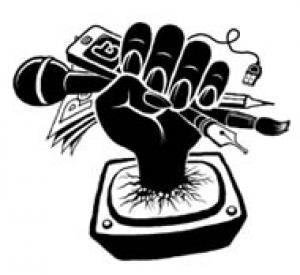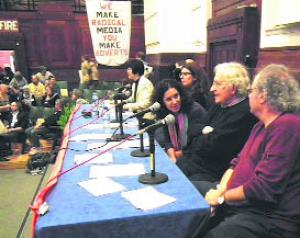After two years of preparation, the Rebellious Media Conference (RMC), featuring Noam Chomsky, John Pilger, Michael Albert and many others, finally happened on 8-9 October. It was a storming success. Details of what happened, and recordings of various sessions, are available on the RMC website (see end of article).
The RMC began life two years ago, as Peace News staff tried to think of ways to celebrate our 75th anniversary as an activist publication. Our first idea was a dayschool…



